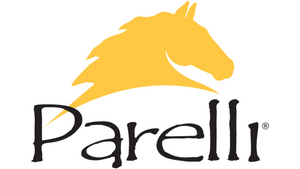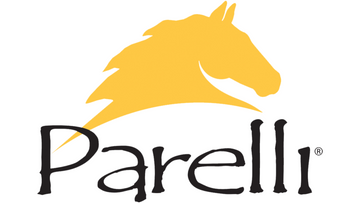
Do you know how you can read a toddler’s emotions and opinions just by watching their expressions? In a similar way, if you learn to read a horse’s body language, you can understand their feelings about an environment, situation, or activity. Actively observing your horse’s body language and listening to what your horse is communicating, allows you to determine if your horse likes to be ridden.
A happy horse will have a soft body with relaxed muscles. A horse's ears and eyes will show relaxation. His tail will be relaxed and swinging. In situations of comfort, he may lower his head. When happy, your horse may even whinny or nicker to show his emotions. An unhappy horse will often have tense muscles, likely pin his ears back, and rapidly swish his tail.
Signs a Horse Likes to Be Ridden
When a horse likes to be ridden, you will notice these behaviors when riding or interacting with your horse:
- Relaxed body language
- Obedience (understanding and willingness to yield)
- Interest and willingness to move
- Focused
- Enjoyment of grooming session before and after riding
Signs a Horse Dislikes Being Ridden
When a horse does not like to be ridden, you will notice these behaviors when riding or interacting with your horse:
- Tense body language (stiff muscles and pinned ears)
- Disobedience
- Defensiveness
- Refusal to move
- Bucking, rearing, crow hopping, kicking out
What If My Horse Shows a Negative Attitude While Riding?
Whether you are interacting with a new horse or a horse you have lots of experience with, noticing these negative behaviors towards riding will raise concerns. For a new horse, starting from the beginning and building an excellent relationship before climbing into the saddle is best. This will include ground exercises and playing the Parelli 7 Games before and while riding.
If these attitudes appear suddenly in a horse, you must first try to identify a trigger. Often, horses who used to love riding show negative attitudes because of pain, fear, or a bad experience. First, check your horse for visible injuries. Back soreness is often the cause of pain when riding. Contact your veterinarian if you notice a sudden change in your horse’s behavior. Second, evaluate the environment - are there any scary objects? Is there an unperceived threat?
What Can I Do To Make Sure We Are Both Having Fun?
To ensure you and your horse have a great time riding, you must be prepared. This includes proper riding equipment, in particular, the right saddle. Choosing the correct bridle and bit will also change your horse's attitude. Many horses shut down with a harsh bit or with uneducated hands that can make any bit feel harsh.
Before riding, warm up your horse's muscles to help avoid injury and pain. Additionally, offer breaks during challenging rides for relaxation and water. Communicate with your horse clearly using phases. Pay attention to how they respond and adjust accordingly.
Finally, add variety to your routine. Just as humans get bored doing the same thing repeatedly, changing up your route, routine, and exercises with your horse will help keep him engaged and interested.
Reasons Your Horse Doesn’t Like Being Ridden
Ill-Fitting Tack
A horse's experience when tacked up will vary significantly based on the tack. Ill-fitting tack can cause unnecessary pain and discomfort to your horse. Horses will often react to this pain and discomfort through bucking, rearing, and disobedience.
Unnecessary Training Aids
Horses who have bad experiences with human’s reacting emotionally, with unclear or unfair aids may not like to be ridden. You can train them to enjoy riding using communication, understanding and psychology, but it will take time. After a negative experience, it takes time and patience to rebuild trust with your horse. Seek out professional help by finding a nearby Licensed Parelli Instructor.
Health Issues
Health issues that cause pain and discomfort through the muscles, joints, and bones will make riding unpleasant. If you think your horse is experiencing these issues, work with your veterinarian to identify the problem and support your horse’s healing and comfort.
Temperament
Some horses are naturally inclined towards people and riders, while others are not. This goes back to knowing your horse’s Horsenality!
Past Experiences
Horses with bad experiences may dislike riding. They may develop fear and anxiety around riding. You can build trust with a horse like this with time, but it will be a long road ahead.
Rider Problem
Sometimes, the issue is not with the horse at all. Inexperienced or rough riders can result in an unhappy horse.
How To Make Riding Enjoyable
Start On The Ground
Warm your horse up On Line before you even think about putting a foot in the stirrup. This gives you a chance to evaluate how he’s feeling and thinking, and to take care of his needs first. If you give a horse what he needs, he’s more likely to give you what you want.
Develop a Good Relationship With Your Horse
A relationship is way more than just riding. Trust and a good relationship are built in the saddle and on the ground. Spend undemanding time with your horse just being together without any expectations.
Increase Your Horse’s Comfort
Caring for your horse's well-being is one of the most important things a horse owner can do. Offer a balanced life with a good diet and lots of exercise. Mental stimulation and play will help keep your horse happy. Medical needs should always be treated by an experienced veterinarian. Address any saddle fit needs by visiting with our friends at Parelli Saddles.
Be Relaxed and Patient
Horses feed off of your energy. Show your horse that you are relaxed in grooming and riding situations, and he will often reflect that. Additionally, show patience, particularly in new activities.
Get Your Horse Fit
If you head to the gym for the first time in months, you probably won’t want to run 10 miles on the treadmill. Your horse feels the same. If they are used to living in a stall and small paddock without a lot of exercise, they are probably out of shape. Build up your horse’s endurance and cardiovascular health slowly before challenging him to more physically demanding activities. Do not ask a horse to go trail riding before he has ridden outside of a paddock. Past experiences matter. A healthy horse is a happy horse.
Relationship First
Most of all, take the time it takes. Here at Parelli we’re so glad that you care about your horse’s well being and how he feels, thinks, acts and plays. Remember to put the relationship first with your horse and everything else will follow.







